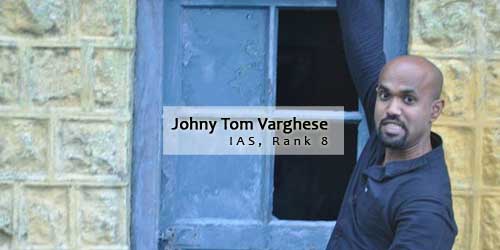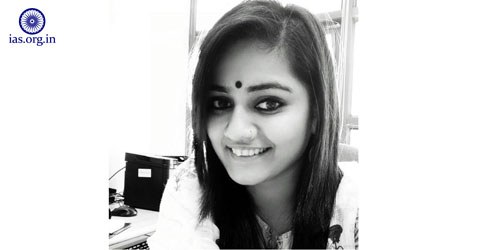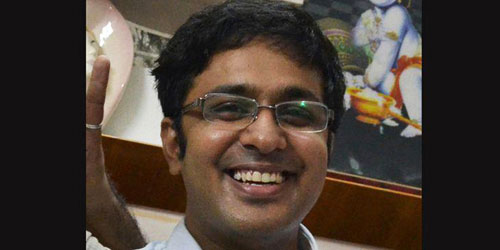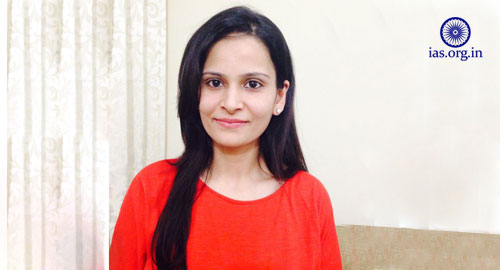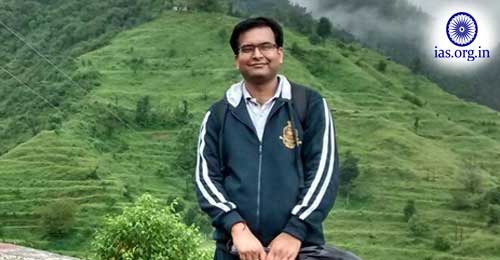Johny Tom Varghese from Kerala has secured 8 rank in Civil Services Examination 2013 at the age of 27.
He says, “Most of the candidates remain motivated particularly for this Examination only; but, leave many other important things in life. Motivate yourself for life and take out pressure from life; that is more important.”
Marks Obtained
| Total Marks | Marks Obtained | |
| Total (Written) | 1750 | 706 |
| Interview | 275 | 201 |
| Total | 2025 | 907 (44.79%) |
Also Read: Meet Doctor Saloni Sidana IAS, 2013
Family Background
Tom’s family lives in Punnakkad near Kozhenchery in Pathanamthitta district. His father George Varghese is the the parish priest of St Paul’s Marthoma Church at East Muthoor in Thiruvalla. His mother Annie is a house maker. His elder sister Aida Ajith is a dentist in the US. Brother Georgy Sam Varghese is an engineer at Oracle and is also working in the US.
Educational Background
Johny Tom Varghese studied till Class 8 at Bethany Academy, Vennukkulam, near Thiruvalla, and did his higher secondary schooling at the St. Thomas Residential School in Thiruvananthapuram. He moved to Chennai for his B.Sc. in Mathematics at Madras Christian College and PGDM from PSG Coimabtore. Mr. Varghese later worked at the Institute of Social Sciences in New Delhi as a research associate for two years.
Optional Paper
Johny Tom Varghese kept Sociology as his optional paper as his aim was to make people’s life better, and have been associated with social work and kept himself busy in learning about life.
Must Read: UPSC Board Interview of Sakshi Sawhney IAS, Rank-6
Attempts by Johny Tom Varghese
Johny Tom Varghese came out with flying colors in his third attempt at the Civil Services Examination. In first attempt he wrote the Main Examination; in second attempt he could not clear even Preliminary Examination. Finally, in third attempt, he achieved success.
How he got motivated?
His friends suggested him to try for UPSC Exam. Civil Service is the biggest player in the development of the country that struck him deep inside and realized that probably there is more human interface to efforts related to social work; so, then he decided to appear in Civil Services Examination.
Tips for the Aspirants
- Study 4-5 hours with full concentration and devotion with fixed time table.
- Make judgement of things where you lack and improve your preparation plan.
- Read papers, articles, reports which will keep you updated for current affairs.
- Its a long process so have patience within yourselves.
Don’t Miss: Krittika Jyotsna IAS – Tops UPSC in Telangana, Andhra Pradesh


